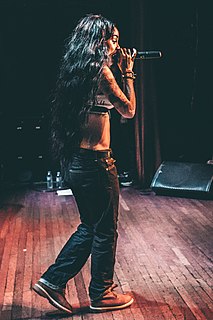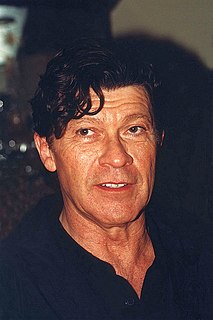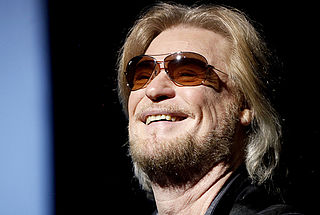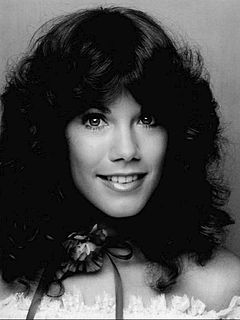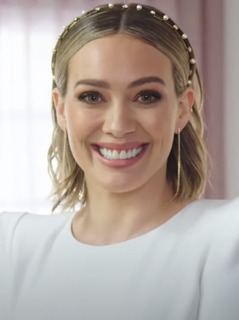A Quote by Jonathan Demme
If you're doing a music film, you've got to be singing about something. Or, you have to be singing in a vocabulary that has tremendous appeal or else people are not going to want to sit there for eighty or ninety minutes hearing this stuff.
Related Quotes
You start singing by singing what you hear. So everyone, when they first start singing, they naturally are singing like whatever they're hearing, because that's the only way you learned how to sing. So when I was growing up on Lauryn Hill, when I started singing her songs, I literally trained my voice to be able to do runs.
The audience keeps singing, keeps making my case, and I just keep strumming until I get close enough to see her eyes. And then I start singing the chorus. Right to her. And she smiles at me, and it’s like we’re the only two people out here, the only ones who know what’s happening. Which is that this song we’re all singing together is being rewritten. It’s no longer an angry plea shouted to the void. Right here, on this stage, in front of eighty thousand people, it’s becoming something else. This is our new vow.
I am fascinated by the places that music comes from, like fife-and-drum blues from southern Mississippi or Cajun music out of Lafayette, Louisiana, shape-note singing, old harp singing from the mountains - I love that stuff. It's like the beginning of rock and roll: something comes down from the hills, and something comes up from the delta.
Singing when no one else is around is always good. I especially like belters. Good, loud singing is probably better medicine than half the stuff they sell in pill bottles, and it's cheaper, too. I also think people should never turn down an opportunity to hold a baby. There's something about the feel of a new baby in your arms that just fixes you.
As someone who listens almost exclusively to contemporary hip-hop and R&B, I definitely like "No Bullshit" by Chris Brown, and melodically I'm really into what he's doing - that song is kind of singular because it's got this piano intro and outro. But obviously I'm not singing about what he's singing about. What we want out of our songs is not the same thing.
Like all soul singers, I grew up singing in church but sometimes I would leave early and sit in the car listening to gospel band, The Blind Boys of Alabama. Hearing their lead singer Clarence made me connect the idea of church and show business and see how I could make a career singing music that stirred the soul.
On-stage, I definitely want to use my real self because I'm singing to people who believe in what I'm singing, and I believe in what I'm singing, but they shouldn't be fooled because we all have fake selves and it's in there somewhere. It's not pretending to hurt somebody; it's just something that comes out of me, from my experience.


